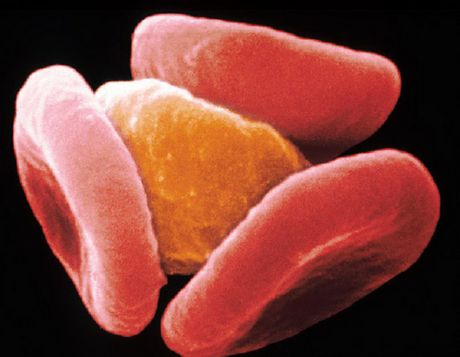New publications
Malaria parasite makes the immune system forget it exists
Last reviewed: 01.07.2025

All iLive content is medically reviewed or fact checked to ensure as much factual accuracy as possible.
We have strict sourcing guidelines and only link to reputable media sites, academic research institutions and, whenever possible, medically peer reviewed studies. Note that the numbers in parentheses ([1], [2], etc.) are clickable links to these studies.
If you feel that any of our content is inaccurate, out-of-date, or otherwise questionable, please select it and press Ctrl + Enter.
The malarial plasmodium makes the immune system forget about its existence: the parasite interferes with the development of lymphocytes, depleting the supply of memory T-cells, which are the ones that should remember pathogens “by sight”.
Perhaps the most surprising and most unpleasant property of malaria is the ability of its pathogen to evade immune attack. Many works are devoted to the relationship between the malaria plasmodium and the immune system. One of the tricks of the plasmodium is the ability to literally hide from immune intelligence. Another method, which researchers from Yale (USA) write about in the PNAS journal, is the parasite reprogramming the host's immune cells.

It is known that the malaria parasite causes severe inflammation, which can lead to severe complications if, for example, the spinal cord is affected. Scientists have found that the plasmodium itself provokes inflammation with the help of the PMIF protein, which is extremely similar to one of the signaling cytokine proteins of the immune system. This protein causes undifferentiated T cells to turn into T killers, designed to attack and kill the disease. It would seem, what is the benefit here? But in this way, the plasmodium depletes the supply of memory T cells. The function of these cells is to remember the pathogen and, upon its repeated visit, purposefully set the immune system on it in accordance with the available "dossier".
Memory T-cells live quite a long time (unlike killer T-cells), and thanks to them, it is often possible to avoid a serious war with the pathogen: the immune system neutralizes it before it reaches full strength. Not so with malaria: they simply do not form. All resources are spent on producing killer T-cells. As a result, each subsequent attack of the disease turns out to be like the first, and no immunity is developed.
It is obvious that when developing a vaccine it will be impossible not to take into account this cunning ability of the malaria pathogen.
